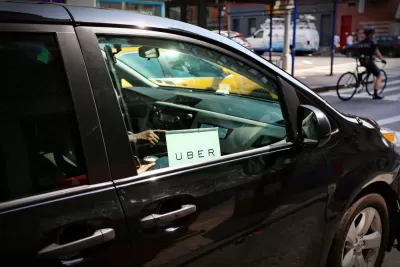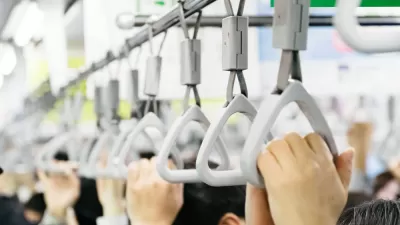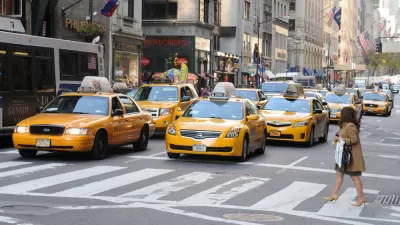Cities using Uber to supplement or replace public transit may find their dependence on the service detrimental to their cities, when prices rise and alternatives aren't available.

In a piece for Slate, Henry Grabar argues that cities and suburbs subsidizing and depending on Uber may come to regret it. "Bus and train riders on the peripheries of Philadelphia; Oakland, California; Tampa, Florida; and other cities have been treated to a little luxury at the end of the commute: a publicly subsidized Uber ride home," Grabar reports.
This may seem like a good way to solve the "last mile problem," but there's a danger in using these private services is that there incentives may not always line up with that of city officials and transit riders. "…at the moment Uber and Lyft are subsidizing U.S. ridership, and one day they’re going to start profiting from it," Grabar writes. That means either higher prices are coming or these services will have to drastically change the kind of services they're offering.
Worse still, Grabar contends, "The rise of ride-hailing companies is increasingly viewed not as a fix for bad service but as its justification." That they can just take the Uber mentality is dangerously short sighted.
FULL STORY: “They Can Just Take an Uber”

Alabama: Trump Terminates Settlements for Black Communities Harmed By Raw Sewage
Trump deemed the landmark civil rights agreement “illegal DEI and environmental justice policy.”

Planetizen Federal Action Tracker
A weekly monitor of how Trump’s orders and actions are impacting planners and planning in America.

How Atlanta Built 7,000 Housing Units in 3 Years
The city’s comprehensive, neighborhood-focused housing strategy focuses on identifying properties and land that can be repurposed for housing and encouraging development in underserved neighborhoods.

In Both Crashes and Crime, Public Transportation is Far Safer than Driving
Contrary to popular assumptions, public transportation has far lower crash and crime rates than automobile travel. For safer communities, improve and encourage transit travel.

Report: Zoning Reforms Should Complement Nashville’s Ambitious Transit Plan
Without reform, restrictive zoning codes will limit the impact of the city’s planned transit expansion and could exclude some of the residents who depend on transit the most.

Judge Orders Release of Frozen IRA, IIJA Funding
The decision is a victory for environmental groups who charged that freezing funds for critical infrastructure and disaster response programs caused “real and irreparable harm” to communities.
Urban Design for Planners 1: Software Tools
This six-course series explores essential urban design concepts using open source software and equips planners with the tools they need to participate fully in the urban design process.
Planning for Universal Design
Learn the tools for implementing Universal Design in planning regulations.
Caltrans
Smith Gee Studio
Institute for Housing and Urban Development Studies (IHS)
City of Grandview
Harvard GSD Executive Education
Toledo-Lucas County Plan Commissions
Salt Lake City
NYU Wagner Graduate School of Public Service





























